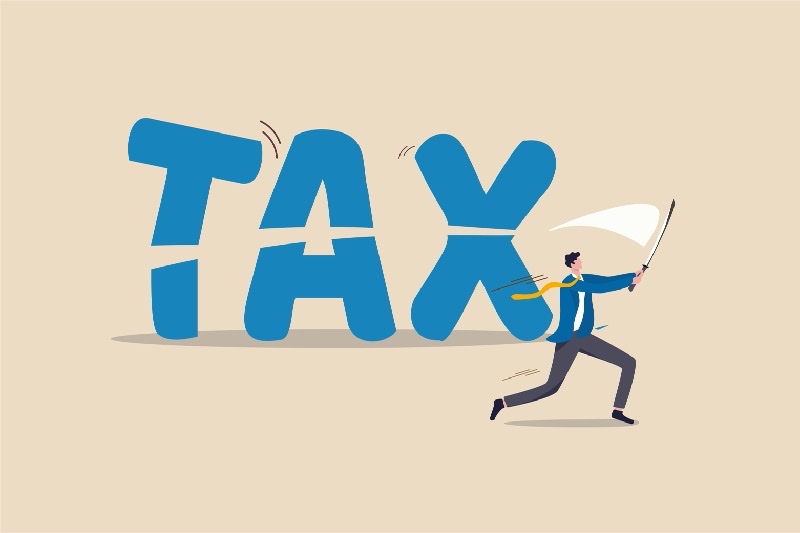Singapore, renowned for its business-friendly environment, offers a relatively simple tax system compared to many other countries. However, understanding the nuances can be crucial for foreigners planning to work or live in the Lion City. This guide will break down the essential aspects of taxes in Singapore for foreigners.
Taxes In Singapore: A Basic Understanding
The first step to understanding your tax obligations in Singapore is determining your tax residency status. This is crucial because it dictates the tax rates and reliefs you are entitled to.
- Non-Resident: If you stay in Singapore for less than 183 days in a year, you’re generally considered a non-resident.
- Resident: Staying in Singapore for 183 days or more in a year typically makes you a resident for tax purposes.
Taxes In Singapore: Tax Rates for Individuals
1. Non-Residents
- Employment income: Taxed at the higher of 15% or the progressive resident rates.
- Other income (e.g., director’s fees, consultancy income): Taxed at a flat rate of 24%.
2. Residents
- Enjoy a progressive tax rate ranging from 0% to 22%.
- Eligible for various tax reliefs and deductions.
Taxes In Singapore: Key Considerations for Foreigners
1. Employment Income
- Non-residents can opt for the 15% flat rate or the progressive resident rates, whichever is higher.
- Residents enjoy a progressive tax rate and can claim various tax reliefs.
2. Other Income
- Income from sources outside Singapore is generally exempt from Singapore tax, unless it’s received in Singapore through a Singapore partnership.
- Income from sources within Singapore is taxable.
3. Capital Gains Tax
- Singapore does not impose a capital gains tax.
4. Dividend Tax
- Dividends received by individuals are generally exempt from tax.
5. Inheritance Tax
- Singapore does not have an inheritance tax.
6. Goods and Services Tax (GST)
- Similar to a value-added tax, GST applies to most goods and services.
Taxes In Singapore: IRAS Tax Regulations for Foreigners
The Inland Revenue Authority of Singapore (IRAS) oversees the country’s tax system. Here are some key points for foreigners regarding Singaporean taxes:
1. Tax Residency
- 183-day rule: Generally, if you stay in Singapore for 183 days or more in a tax year, you’re considered a tax resident.
- Tax implications: Residency status determines your tax rates, reliefs, and deductions.
2. Income Tax
- Progressive tax rates: Residents are subject to progressive income tax rates.
- Non-residents: Typically taxed at a flat rate or based on resident rates if income is sourced from Singapore.
- Employment income: Taxable on income earned in Singapore, regardless of residency status.
- Other income: Includes rental income, dividends, and business profits. Taxability depends on residency and source of income.
3. Tax Reliefs and Deductions
- Available for residents: Various reliefs and deductions can reduce taxable income.
- Examples: CPF contributions, personal reliefs, donations, and expenses related to employment.
4. Filing Tax Returns
- Obligation: Both residents and non-residents with taxable income must file tax returns.
- Deadlines: Annual tax returns are typically due by April 15th of the following year.
5. Common Tax Mistakes
- Incorrect residency status: Miscalculating the number of days spent in Singapore can lead to incorrect tax filings.
- Overlooking income sources: Failing to declare all income, including foreign income if applicable.
- Incorrect claims for reliefs and deductions: Providing inaccurate information or claiming ineligible deductions.
6. Penalties for Non-Compliance
- Late filing: Penalties for late submission of tax returns.
- Underpayment: Interest charges on unpaid taxes.
- Tax evasion: Severe penalties, including fines and imprisonment.
7. Additional Considerations
- Goods and Services Tax (GST): Applicable to most goods and services.
- Double taxation agreements: Singapore has DTA with many countries to prevent double taxation.
- Professional advice: Consulting a tax professional can help navigate complexities and ensure compliance.
Taxes In Singapore: Planning and Optimization
While Singapore’s tax system is relatively straightforward, there are opportunities for tax planning and optimization. Some key considerations include:
- Tax Residency: Careful planning of your stay in Singapore can impact your tax residency status and potential tax savings.
- Tax Reliefs and Deductions: Maximizing eligible tax reliefs and deductions can significantly reduce your tax liability.
- Supplementary Retirement Scheme (SRS): Contributing to an SRS account offers tax deductions and potential tax-deferred growth.
- Professional Advice: Consulting with a tax professional can help you navigate the complexities and ensure optimal tax efficiency.
Suggested Read: What Singapore Enterprises Need to Know About IRAS Tax Rates (2024-2025)
Conclusion
Singapore’s tax-friendly environment makes it an attractive destination for businesses and individuals alike. Understanding the tax implications is essential for foreigners to make informed financial decisions. By carefully considering your tax residency, income sources, and available reliefs, you can effectively manage your tax obligations in Singapore.
Additional Tips:
- Keep detailed records of your income and expenses.
- Stay updated on tax law changes.
- Learn about foreign tax rules and regulations on the official website of the Inland Revenue Authority of Singapore.








 5
5


























